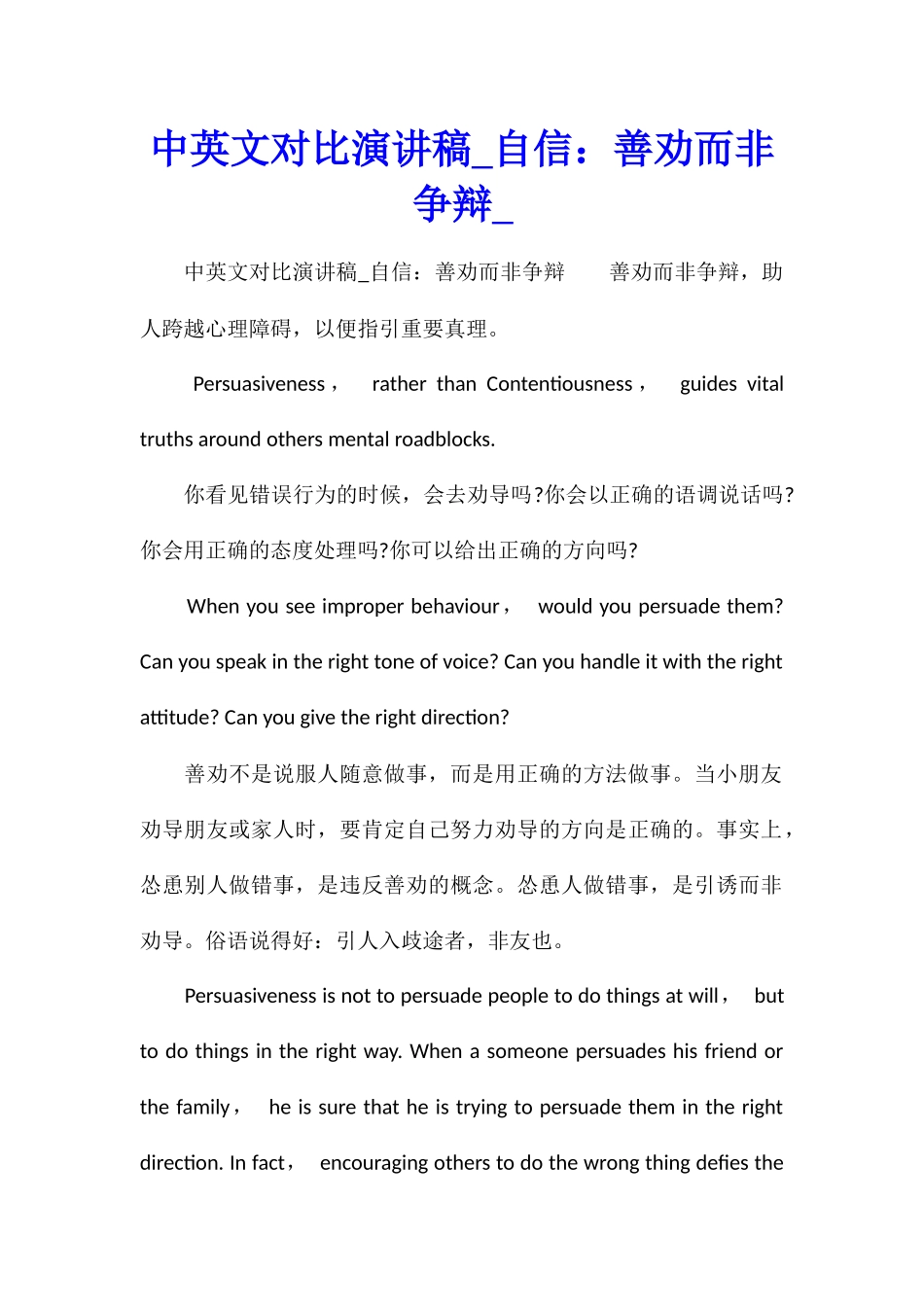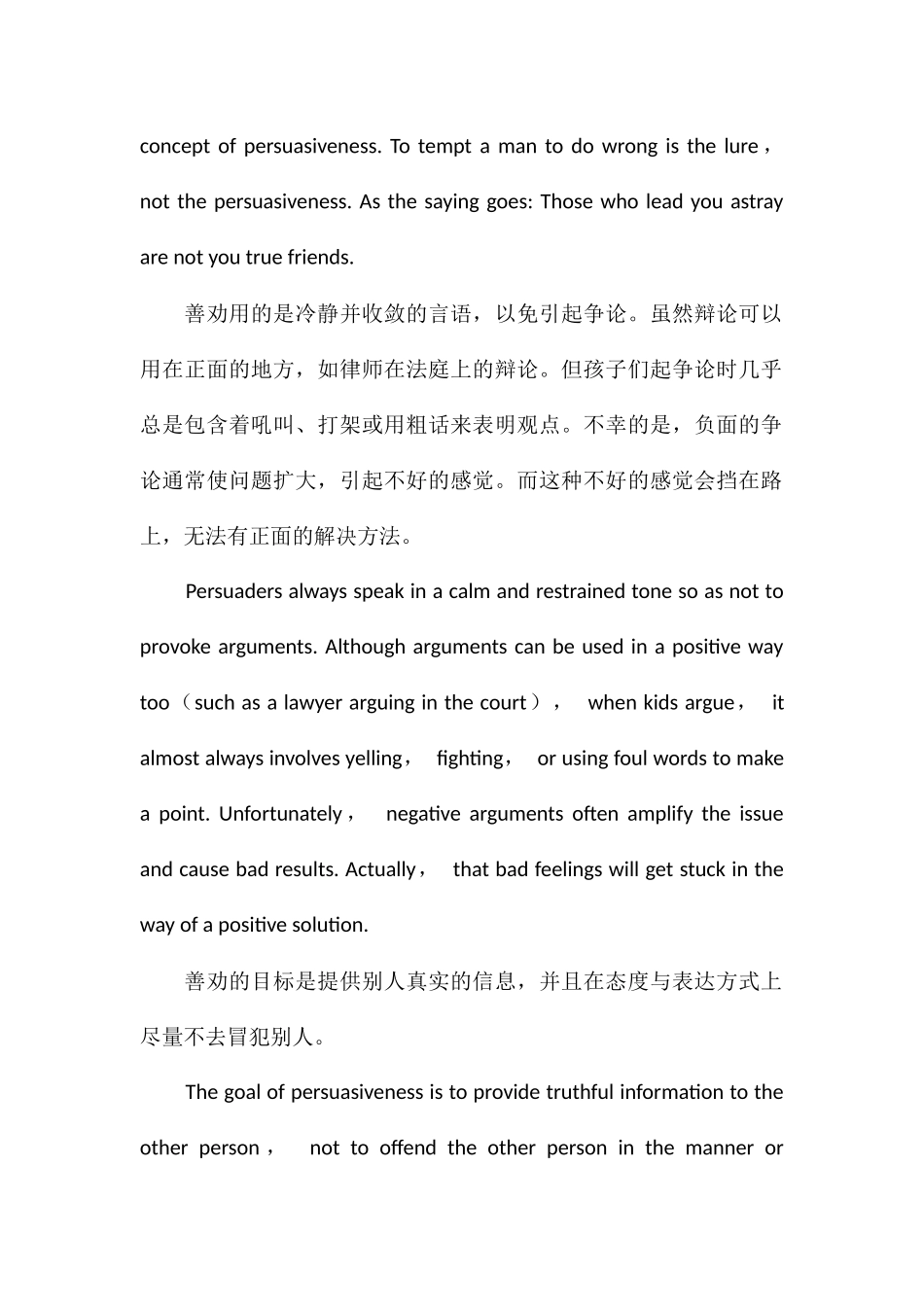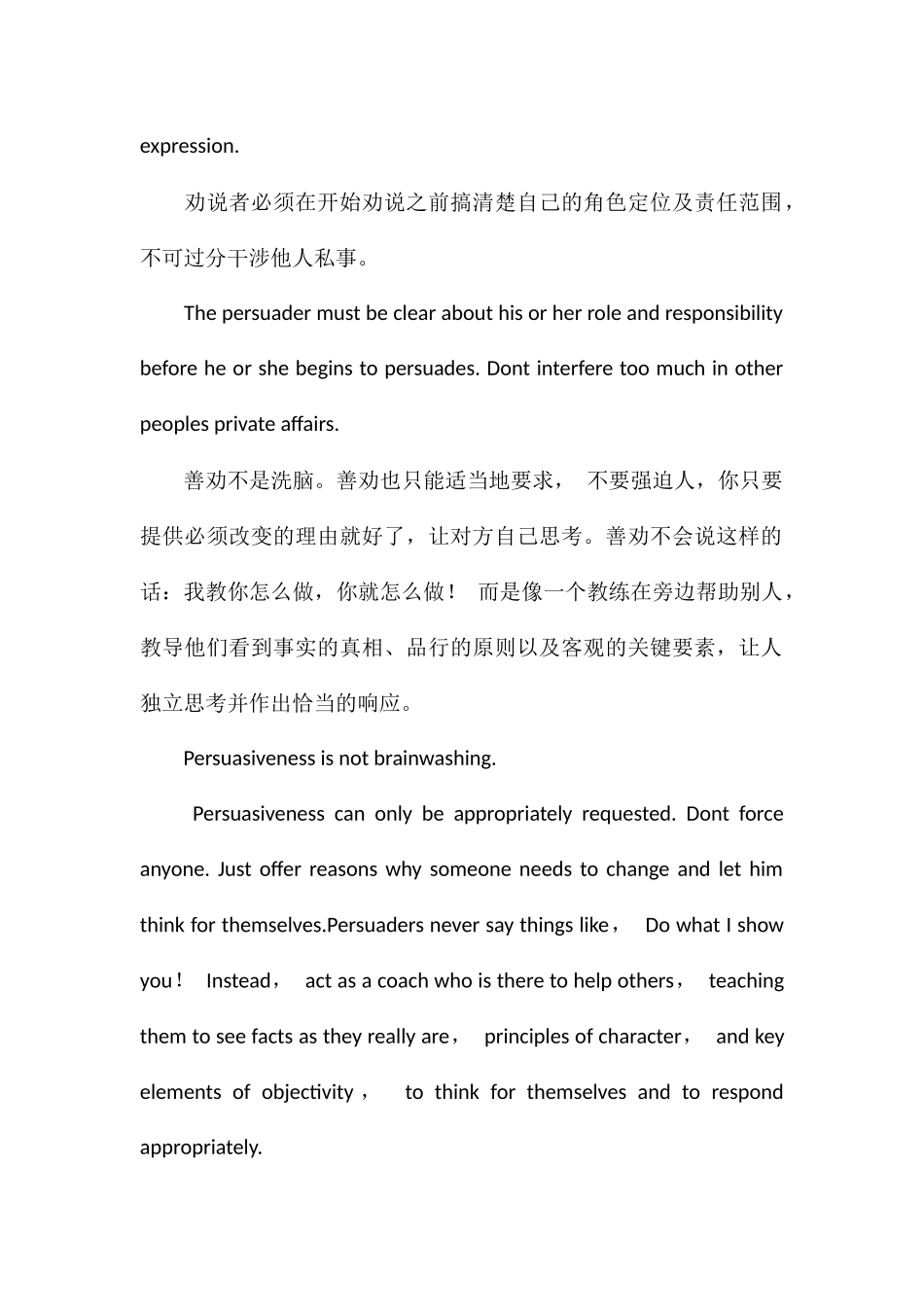中英文对比演讲稿_自信:善劝而非争辩_中英文对比演讲稿_自信:善劝而非争辩 善劝而非争辩,助人跨越心理障碍,以便指引重要真理。 Persuasiveness , rather than Contentiousness , guides vital truths around others mental roadblocks. 你看见错误行为的时候,会去劝导吗?你会以正确的语调说话吗?你会用正确的态度处理吗?你可以给出正确的方向吗? When you see improper behaviour, would you persuade them? Can you speak in the right tone of voice? Can you handle it with the right attitude? Can you give the right direction? 善劝不是说服人随意做事,而是用正确的方法做事。当小朋友劝导朋友或家人时,要肯定自己努力劝导的方向是正确的。事实上,怂恿别人做错事,是违反善劝的概念。怂恿人做错事,是引诱而非劝导。俗语说得好:引人入歧途者,非友也。 Persuasiveness is not to persuade people to do things at will, but to do things in the right way. When a someone persuades his friend or the family, he is sure that he is trying to persuade them in the right direction. In fact, encouraging others to do the wrong thing defies the concept of persuasiveness. To tempt a man to do wrong is the lure , not the persuasiveness. As the saying goes: Those who lead you astray are not you true friends. 善劝用的是冷静并收敛的言语,以免引起争论。虽然辩论可以用在正面的地方,如律师在法庭上的辩论。但孩子们起争论时几乎总是包含着吼叫、打架或用粗话来表明观点。不幸的是,负面的争论通常使问题扩大,引起不好的感觉。而这种不好的感觉会挡在路上,无法有正面的解决方法。 Persuaders always speak in a calm and restrained tone so as not to provoke arguments. Although arguments can be used in a positive way too(such as a lawyer arguing in the court), when kids argue, it almost always involves yelling, fighting, or using foul words to make a point. Unfortunately , negative arguments often amplify the issue and cause bad results. Actually, t...


